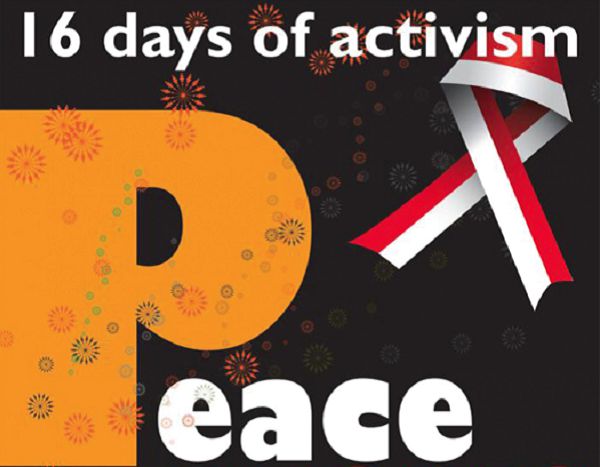
Ending gender-based violence: Everybody’s responsibility
This year, the United Nations UNiTE to End Violence against Women Campaign chose the theme: Orange the World: #HearMeToo to commemorate the global event.
The 16-Day period which spans November 25 to December 10, recognises and celebrates key moments/days such as the International Day for the Elimination of Violence against Women (November 25), International Women Human Rights Defenders Day (November 29), World AIDS Day (December 1) and ends with International Human Rights Day (December 10 December).
Also, the Centre for Women’s Global Leadership, the initiators of the 16 days’ campaign, have chosen the theme: “End Gender Based Violence in the world of work”.
Their theme builds on the momentum and achievements during the 2017 campaign, and to continue to target the institutions in which GBV is perpetuated and push for change and accountability.
Women in Law and Development in Africa (WiLDAF, Ghana) in collaboration with OXFAM in Ghana, Care International, Crossroads International, United Nations Population Fund (UNFPA) and Safe Spaces Foundation joined the world once again to observe the campaign.
In Ghana, notwithstanding national efforts by the government and civil society at addressing gender-based violence, it is still pervasive in its various forms.
2015 studies
A 2015 studies by the Institute of Development Studies, Ghana Statistic Service and Associates indicated that 27.7 per cent of Ghanaian women have experienced at least one form of domestic violence in the 12 months prior to the survey, and young women (aged 15-19) were up to 4 times more likely to have experienced domestic violence than women aged 30-39 years.
The Domestic Violence Victims Support Unit (DOVVSU)’s statistical data for 2016 and 2017 indicates a significant increase from 2015 levels.
Assault (physical Abuse) increased from 4152 in 2016 to 4,900 in 2017.
In the same period, defilement recorded 719 and 790, sexual harassment 14 and 35, incest from 8 to 20 respectively.
In all these cases female survivors far outweighed male survivors.
The situation is not different when it comes to workplace gender-based violence. Ghanaian media reports are replete with stories about sexual abuse of women in the workplace.
On the occasion of the celebration of this year’s 16 days campaign, WiLDAF Ghana and partners take the opportunity to commend the Government of Ghana for its efforts over the years to combat gender-based violence. These efforts have ranged from a legislative response in the form of the Domestic Violence Act, 2007 (DVA) with its supporting Legislative Instrument and the Institutional Arrangements (DOVVSU, DV Secretariat, DV Management Board, the Gender -Based Violence Courts among others) for the implementation and enforcement of the law.
Commendation
We also commend civil society for their role in generating the momentum that led to the current level of governments’ response in terms of legislation and the above-named Institutional Arrangements.
Again, we laud civil society and concerned individuals for holding governments accountable for the effective implementation of the DVA; be it through public interest litigation to enforce the provisions on the establishment and resourcing of the DV fund, monitoring the extent of application of the DVA by the courts through the observation of court proceedings, the benchmarking and analysis of the DVA and cases to assess the development of the law around DV since the passage of the DVA.
We also acknowledge the recent launch of CoPASH; a coalition-based initiative to drive Sexual and Gender Based Violence response and prevention efforts.
Notwithstanding all the above and many more efforts to prevent and combat GBV, there are still significant challenges to be surmounted in the quest to prevent and reduce GBV.
WiLDAF, Ghana therefore wishes to remind the Government of Ghana, key stakeholders and the general public that it is everybody’s responsibility to end gender-based violence.
Call on government
In particular, we call on the Government to:
As a matter of urgency resource the Domestic Violence Fund and provide free medical care for domestic violence survivors as stipulated in sections 8(3) and 29 of the DV Act, 2007 (Act 732) and the LI 2237 and reiterated in Kpebu v Attorney General’s case.
Provide adequate assistance and protection to victims of violence by providing shelter and supporting / strengthening the capacity of the few CSO owned shelters and crisis centres,
Make adequate budgetary allocations to operationalise many of the anti-discriminatory laws, especially the Domestic Violence Act,
Consistently enhance the capacity of key actors, including prosecutors, crime officers and medical officials, among others, to ensure proper management of domestic violence cases.